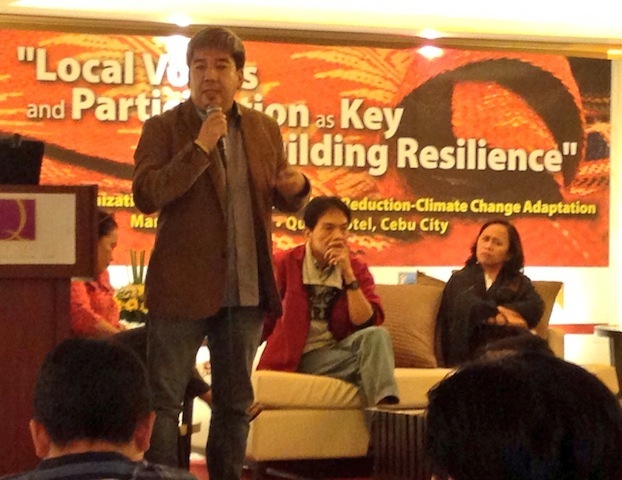Urgent and clear action to address climate change and disaster is essential to protect the country’s most vulnerable communities after Super Typhoon Yolanda lashed the Philippines in November last year, civil society organizations (CSO) said during the opening of the two days summit held Wednesday.
“ Popularizing disaster risk reduction management (and climate change) issues in the public is key in strengthening local alliances,” said Adelina Sevilla Alvarez, lead convenor of the Disaster Risk Reduction Network Philippines (DRRNetPhils), at the opening of the summit attended by more than 100 CSOs working on the post-Yolanda rehabilitation and reconstruction.
The summit was convened by the Disaster Risk Reduction-Climate Change Adaptation Coalition represented by the DRRNetPhils, Ateneo School of Government, Center for Disaster Preparedness, World Vision, Aksyon Klima Pilipinas, Christian Aid and Oxfam.
Alvarez pointed out that after the typhoon Yolanda, many gaps need to be addressed such as the implementation of the Philippine Disaster Risk Reduction and Management Act of 2010, and the strengthening of the climate adaptation and risk reduction mechanisms.
Typhoon Yolanda was dubbed as the strongest storm ever recorded on land that devastated 36 provinces, leaving more than 6,000 people dead, affecting more than 15 million and damaged P18.34 billion of infrastructure and another P18.35 billion of agriculture.
Voltaire Alferez, national coordinator of Aksyon Klima Pilipinas, said tackling climate change will be crucial to achieve sustainable development, adding that the government must “now look beyond extreme weather events” and adapt to the “new normal”.
“ The government must now implement the National Climate Change Action Plan and include the People’s Survival Fund in the 2015 budget in order to support local adaptation activities,” Alferez said.
Isagani Serrano, convenor of the Social Watch Philippines said that building back better is “reducing or overcoming vulnerabilities” and not building back pre-Yolanda condition.
“ Yolanda reflects the high inequality in the Philippine development. Visayas, for instance, gets only 18 percent of the 2014 budget,” Serrano said.
According to Zenaida Delica Willison, an expert on community-based disaster management, the discussion on disaster risk reduction has improved in the past years. But she challenges the civil society organizations to work more at the grassroots level.
““ Today, the discussion on disaster risk reduction is all over the world. There are hazards that can be prevented because of community resilience. If we tackle the roots of vulnerability, the hazards that hit us can be minimized,” Willison said. “ People must be vigilant and passionate about the work on disaster risk reduction and climate change.”
Willison said the civil society organizations “ can advocate and echo the voices of the local people and that resilience is a result of good disaster prevention and mitigation.”
On financing climate change and disaster risk reduction, Red Constantino of the Institute for Climate and Sustainable Cities, said his group is launching soon the Adapt Tracker project to reflect clear and transparent tracking of budget donated by various countries.
“ Climate finance is very important to track. We must be vigilant to look into this matter. Accountability and transparency in financing climate change is vital. The People’s Survival Fund, for instance, is a ‘rewards fund’ and not a superfund,” Constantino explained.


